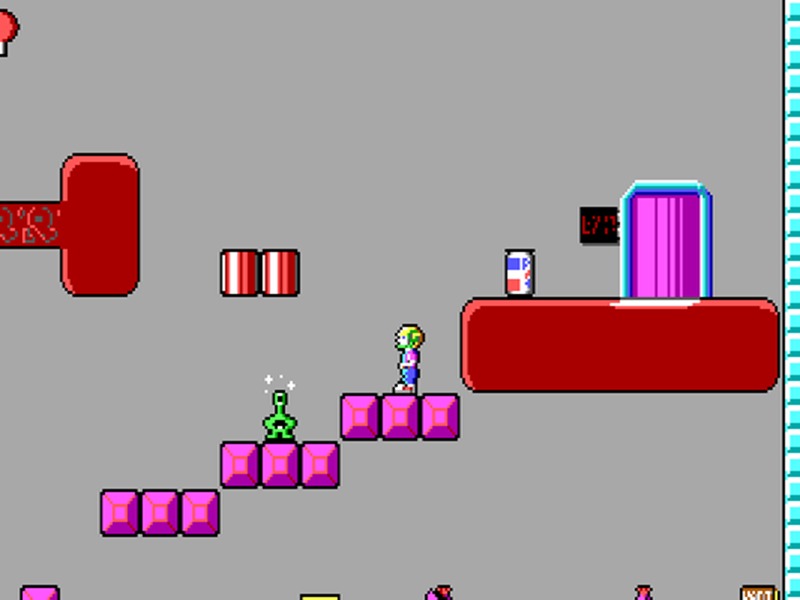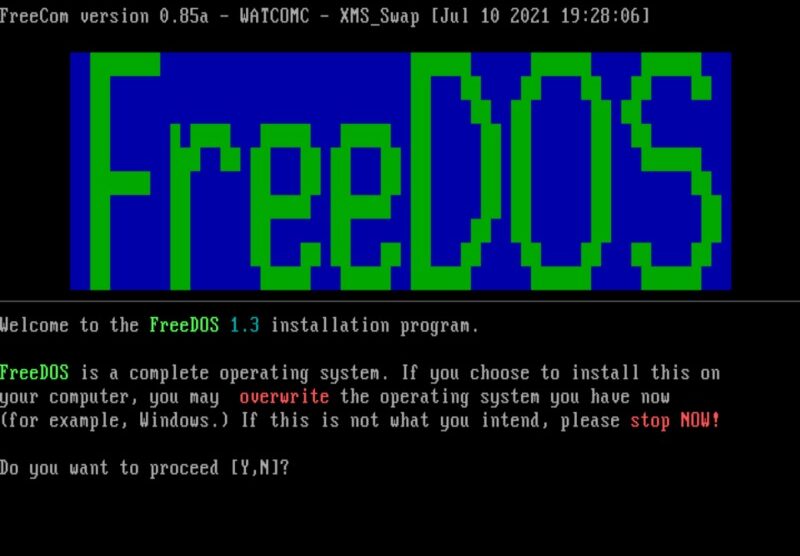In an age of sleek, graphical user interfaces and cloud-based computing, it might come as a surprise that a text-based operating system from the 1980s continues to thrive. Yet, that’s exactly the case with FreeDOS, a free and open-source operating system compatible with MS-DOS. Even after three decades, FreeDOS remains relevant, serving a dedicated community of users and developers. Let’s explore why this blast from the past continues to hold its ground in the modern computing landscape.

What is FreeDOS?
FreeDOS is an open-source operating system designed to be compatible with MS-DOS, the text-based operating system that dominated personal computing in the 1980s and early 1990s. Key features of FreeDOS include:
- Full compatibility with MS-DOS programs and games
- Free and open-source, allowing users to view and modify the source code
- Lightweight system requirements, ideal for older hardware
- Active development and community support
The Enduring Relevance of FreeDOS
While FreeDOS may seem like a relic from a bygone era, it continues to serve important functions in several areas:
1. Legacy Hardware Support
FreeDOS breathes new life into older computers that may not have the resources to run modern operating systems. This is particularly valuable for:
- Industrial and embedded systems that rely on older hardware
- Vintage computer enthusiasts looking to keep their classic machines operational
- Organizations with specialized equipment that requires DOS-compatible software
2. Running Classic Software and Games
For many users, FreeDOS is the go-to platform for running older software and games designed for DOS. This includes:
- Classic DOS-based games that may not run properly on modern systems
- Legacy business software that hasn’t been updated for newer operating systems
- Educational programs and tools from the DOS era
3. Learning and Education
FreeDOS serves as an excellent platform for those interested in:
- Learning about operating system fundamentals
- Exploring computer history and the evolution of operating systems
- Developing low-level programming skills
Active Development: Keeping DOS Alive and Well
One of the most impressive aspects of FreeDOS is its continued development. Despite being based on a decades-old operating system, FreeDOS benefits from an active community of developers and users who contribute to its ongoing evolution. This active development ensures:
- Compatibility with newer hardware components
- Bug fixes and performance improvements
- New features that extend the capabilities of the original DOS
This commitment to ongoing development means that FreeDOS isn’t just a static preservation of DOS, but a living, evolving system that continues to adapt to the needs of its users.
FreeDOS: Not Competing, but Complementing
It’s important to note that FreeDOS isn’t trying to compete with modern operating systems like Windows, macOS, or Linux distributions. Instead, it fills a specific niche in the computing ecosystem. FreeDOS complements modern systems by:
- Providing a solution for running legacy software that won’t work on newer systems
- Offering a lightweight alternative for older hardware or specific use cases
- Serving as a platform for learning about operating system fundamentals and computer history
The FreeDOS Community: Passionate and Dedicated
At the heart of FreeDOS’s continued existence is its community. This group of developers, users, and enthusiasts keeps the project alive through:
- Volunteer development efforts
- Community support and troubleshooting
- Documentation and resource creation
- Sharing of DOS-compatible software and games
This passionate community ensures that FreeDOS remains not just a functional operating system, but a thriving ecosystem for those who value the simplicity and directness of the DOS era.
Use Cases: Where FreeDOS Shines
While not a mainstream operating system, FreeDOS finds its niche in several specific use cases:
1. Retro Gaming
For enthusiasts of classic DOS games, FreeDOS provides an authentic environment to relive gaming experiences from the 80s and 90s.
2. Industrial and Embedded Systems
Some industrial machinery and embedded systems still rely on DOS-compatible software. FreeDOS offers a reliable, open-source solution for these scenarios.
3. Software Development and Testing
Developers working on cross-platform software or maintaining legacy applications often use FreeDOS for testing and compatibility checks.
4. Education
Computer science courses focusing on operating system fundamentals or computer history may use FreeDOS as a teaching tool.
The Future of FreeDOS
As we look to the future, what can we expect from FreeDOS?
- Continued Development: The dedicated community behind FreeDOS ensures that it will continue to evolve and improve.
- Preservation of Computing History: FreeDOS serves as a living museum of sorts, preserving the feel and functionality of an important era in computing history.
- Niche Applications: As long as there are legacy systems and software that require DOS compatibility, FreeDOS will have a role to play.
Conclusion: The DOS Dream Lives On
FreeDOS stands as a testament to the enduring legacy of DOS and the power of open-source communities. While it may not be the operating system of choice for everyday computing tasks, its continued relevance in specific niches demonstrates the value of preserving and evolving older technologies.
For those who remember the days of command prompts and DOS games, FreeDOS offers a nostalgic trip down memory lane. For younger generations, it provides a window into the history of personal computing and a platform for learning about operating system fundamentals.
As we embrace the latest advancements in technology, FreeDOS reminds us of the importance of maintaining compatibility with our digital past. It’s a bridge between computing eras, kept alive by a passionate community of developers and users who understand the value of preserving this important piece of computing history.
Whether you’re a retro computing enthusiast, a developer working with legacy systems, or simply curious about the roots of personal computing, FreeDOS offers a unique and valuable experience. In a world of rapid technological change, FreeDOS stands as a reminder that sometimes, the old ways still have something valuable to offer.










Add Comment